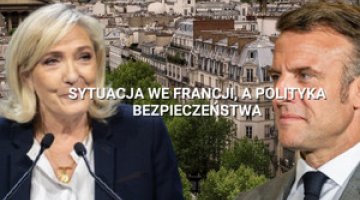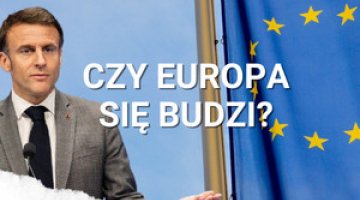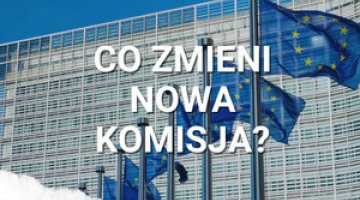Russia’s ‘temptation of Europe’
During this year’s St. Petersburg International Economic Forum (16-17 June), which Russia has for many years treated as the main platform for promoting itself on the international stage for economic cooperation, President Vladimir Putin proposed a new vision of European-Russian relations: Greater Eurasia. This is intended to be part of a wider format for economic cooperation on the scale of the entire Eurasian continent. This cooperation would include the European Union on the one hand, and the major Asian powers assembled in the Shanghai Cooperation Organisation (China, India, Iran) on the other. The Eurasian Union would play the role of the fundamental lodestone and bridge between them. As is his wont, President Putin suggested that the economic sanctions on Russia are hurting Europe above all and were introduced in the interest of and under pressure from the United States, and that the Europeans have become victims of Washington’s “cynical game”.
At the same time, both Putin and Russian foreign minister Sergey Lavrov firmly clung to the existing line of Russian diplomacy, blaming the West for worsening relations. However, they stressed that Russia will not make any concessions on either Crimea or the conflict with Ukraine, and in particular, they rejected any possibility of revising the Minsk agreements, and blamed Ukraine for the lack of progress in implementing them. The Russian president held a number of meetings with European politicians (including Matteo Renzi, the Prime Minister of Italy; Jean-Claude Juncker, the President of the EC; and Nicolas Sarkozy, the former French President and current presidential candidate), as well as business representatives (including Ben van Beurden, the director of Royal Dutch Shell).
Commentary
- The Kremlin used the forum to conduct a propaganda-diplomatic offensive with a view to strengthening the trend in Europe towards gradually normalising relations with Russia, including the mutual lifting of economic sanctions, despite Moscow’s ongoing support for the separatists in Donbas and its uncompromising stance on Crimea. One sign of these trends was the presence at the forum of important Western European politicians, as well as the suggestion from one of them (Sarkozy) that Russia could break through the impasse on sanctions by being the first to lift them, which would make the renewal of EU sanctions politically impossible. The Russian response suggests that Moscow is ready to show some flexibility on the issue of the procedure and the order of the mutual lifting of sanctions, expecting a guarantee of their gradual abolition by the EU in return.
- President Putin’s proposed vision of a ‘Greater Eurasia’ is aimed at creating the (false) impression that Russia is a key part of a new economic order emerging in Eurasia. The European Union’s participation is supposed to be a way for it to avoid being marginalised, but it must be linked to the EU’s sanctions policy being dropped, together with an informal acceptance of a Russian sphere of influence in Eastern Europe. This is a modification of the earlier Russian concept of ‘Greater Europe’. However, this vision has no prospects for developing along these lines, as the European Union does not need Russia as an intermediary to develop its economic relations with Asia. A limited implementation of the concept will be possible only within the framework of the Chinese New Silk Road project (‘one belt, one road’).




